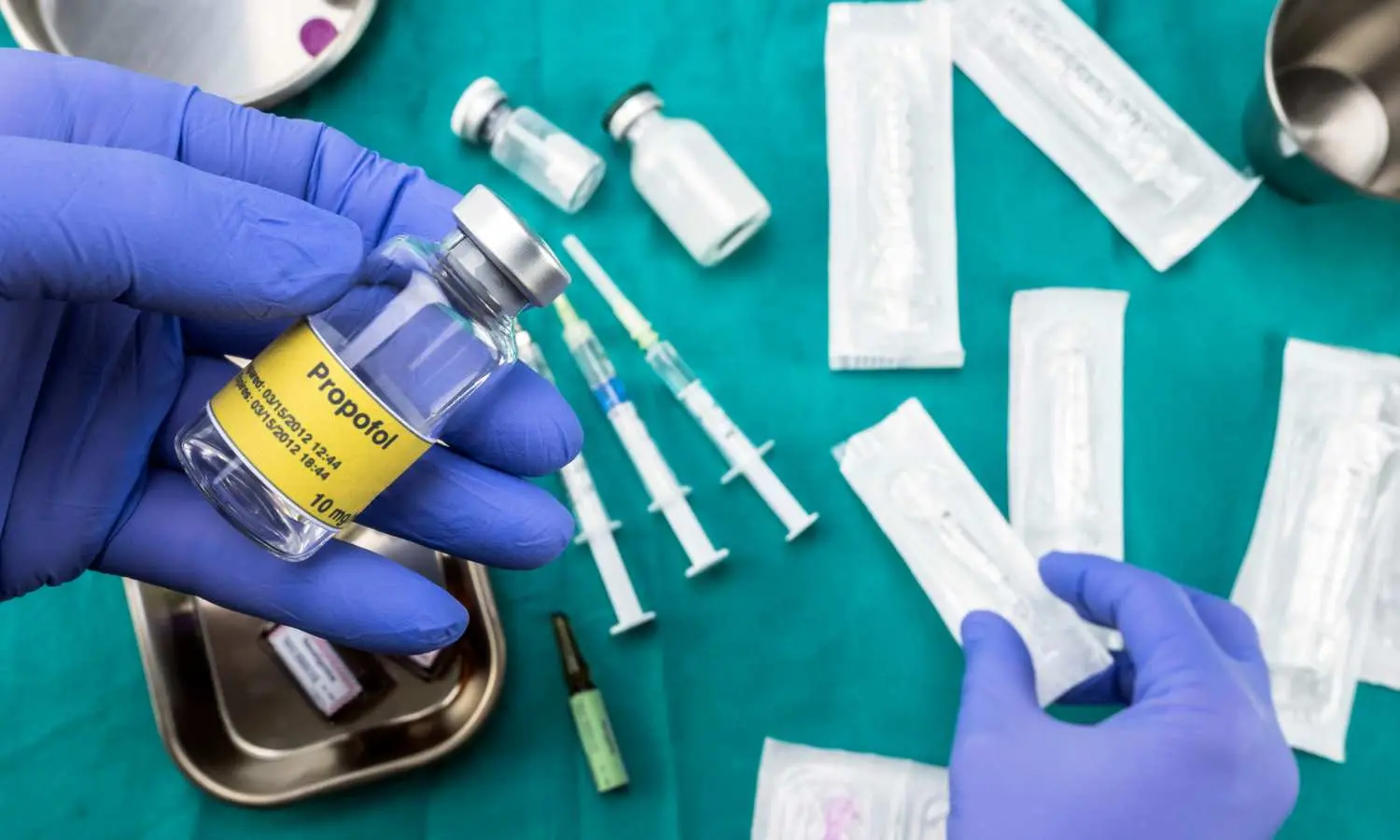- Home
- Medical news & Guidelines
- Anesthesiology
- Cardiology and CTVS
- Critical Care
- Dentistry
- Dermatology
- Diabetes and Endocrinology
- ENT
- Gastroenterology
- Medicine
- Nephrology
- Neurology
- Obstretics-Gynaecology
- Oncology
- Ophthalmology
- Orthopaedics
- Pediatrics-Neonatology
- Psychiatry
- Pulmonology
- Radiology
- Surgery
- Urology
- Laboratory Medicine
- Diet
- Nursing
- Paramedical
- Physiotherapy
- Health news
- Fact Check
- Bone Health Fact Check
- Brain Health Fact Check
- Cancer Related Fact Check
- Child Care Fact Check
- Dental and oral health fact check
- Diabetes and metabolic health fact check
- Diet and Nutrition Fact Check
- Eye and ENT Care Fact Check
- Fitness fact check
- Gut health fact check
- Heart health fact check
- Kidney health fact check
- Medical education fact check
- Men's health fact check
- Respiratory fact check
- Skin and hair care fact check
- Vaccine and Immunization fact check
- Women's health fact check
- AYUSH
- State News
- Andaman and Nicobar Islands
- Andhra Pradesh
- Arunachal Pradesh
- Assam
- Bihar
- Chandigarh
- Chattisgarh
- Dadra and Nagar Haveli
- Daman and Diu
- Delhi
- Goa
- Gujarat
- Haryana
- Himachal Pradesh
- Jammu & Kashmir
- Jharkhand
- Karnataka
- Kerala
- Ladakh
- Lakshadweep
- Madhya Pradesh
- Maharashtra
- Manipur
- Meghalaya
- Mizoram
- Nagaland
- Odisha
- Puducherry
- Punjab
- Rajasthan
- Sikkim
- Tamil Nadu
- Telangana
- Tripura
- Uttar Pradesh
- Uttrakhand
- West Bengal
- Medical Education
- Industry
Remimazolam Tonsilate Effective And Safe Compared To Propofol For Day Surgery

A recent study published in BMC Anesthesiology aimed to evaluate the effectiveness and safety of Remimazolam Tosilate (RT) compared to Propofol for general anaesthesia in day surgery cases. RT, a novel short-acting GABA (A) receptor agonist, has shown rapid recovery from procedural sedation and can be fully reversed by flumazenil. Despite limited research on the comparison between RT and Propofol, this study sought to fill the gap and provide valuable insights into their usage for day surgery procedures.
The study was conducted by Wenchen Luo and colleagues which enrolled 115 patients scheduled for day surgery and randomly assigned them to three groups: RT (n=39), RT + flumazenil (n=38), and propofol (n=38). The primary endpoints included anaesthesia induction time and time until the patients were fully alert. Other parameters assessed were anaesthesia success rate, bispectral index (BIS) values, injection pain, opioid and vasopressor doses, postoperative recovery profiles, perioperative inflammatory and cognitive changes, and the occurrence of adverse events.
The findings of the study were:
● The study found that the induction times did not significantly differ among the three groups (P = 0.437).
● However, patients treated with RT had a longer median time until they were fully alert compared to those in the propofol or RT + flumazenil groups (17.6 minutes vs. 12.3 minutes vs. 12.3 minutes, P < 0.001).
● The three groups exhibited similar postoperative recovery quality and showed no significant differences in terms of inflammatory and cognitive state changes (P > 0.05).
● In terms of safety, a smaller percentage of patients who received RT (26.3%) or RT + flumazenil (31.6%) experienced hypotension during anaesthesia maintenance compared to those who received propofol (68.4%).
● As a result, the RT group required significantly less ephedrine (P < 0.001) and phenylephrine (P = 0.015) to manage hypotension.
● The RT with or without flumazenil groups exhibited lower serum triglyceride levels (P < 0.001) and reported much less frequent injection pain compared to the propofol group (5.3% vs. 0% vs. 18.4%).
These findings suggest that RT may have a slower recovery time compared to propofol, but it does not significantly affect postoperative recovery quality or lead to adverse inflammatory and cognitive changes. Importantly, RT demonstrated a superior safety profile with a reduced incidence of hypotension and the need for vasopressor medications. Moreover, patients receiving RT experienced lower serum triglyceride levels and reported less injection pain, indicating potential benefits over propofol in day surgery procedures.
In conclusion, the study demonstrated that RT is an effective alternative to propofol for general anaesthesia in day surgery. While it provided rapid induction and comparable recovery profiles, it had a longer recovery time without the administration of flumazenil.
Furthermore, the safety profile of RT proved to be superior to propofol, showing fewer instances of hypotension and injection pain. These findings suggest that Remimazolam Tosilate has the potential to revolutionize the field of anaesthesia in day surgery, offering a safer and more efficient option for patients and healthcare professionals.
Reference:
Luo, W., Sun, M., Wan, J., Zhang, Z., Huang, J., Zhang, J., Xiong, W., Xia, L., Xu, P., Miao, C., Zhang, X., Liu, M., & Zhong, J. (2023). Efficacy and safety of remimazolam tosilate versus propofol in patients undergoing day surgery: a prospective randomized controlled trial. BMC Anesthesiology, 23(1), 182. https://doi.org/10.1186/s12871-023-02092-2.
Dr Kamal Kant Kohli-MBBS, DTCD- a chest specialist with more than 30 years of practice and a flair for writing clinical articles, Dr Kamal Kant Kohli joined Medical Dialogues as a Chief Editor of Medical News. Besides writing articles, as an editor, he proofreads and verifies all the medical content published on Medical Dialogues including those coming from journals, studies,medical conferences,guidelines etc. Email: drkohli@medicaldialogues.in. Contact no. 011-43720751


